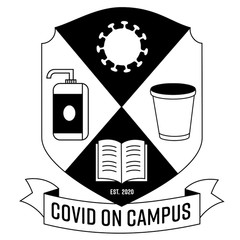Photo by L. Cohen via Getty Images
The University of California Berkeley undergraduates who shared learning environments with Allison Mack said the actor and former NXIVM member often spoke up during Zoom lectures and frequently reached out to her peers with supplemental reading suggestions and friendly comments. Few, if any, knew who Mack was. Recently, a student alerted VICE that Mack’s participation extended to a summer course that involved deep discussions of personal trauma, a fact the student was horrified to learn only after the class was over. “She’s taking classes with women who are the age that she used to seek people out to recruit—exactly the demographic that she used to target,” the student told VICE. “We were all just unknowingly exposing ourselves to this person.” Mack, 38, has re-emerged in conversations due to her central role in The Vow, the HBO documentary series that tells the story of alleged cult NXIVM and, within it, the “women’s empowerment” group DOS. Former NXIVM members claim Mack participated in practices that included a stringent master-slave hierarchy, extreme calorie restriction, manipulating members into having sex with NXIVM founder Keith Raniere, and branding members with Mack’s and Raniere’s initials. As a result of her involvement with NXIVM, Mack was charged with sex trafficking, sex trafficking conspiracy, and forced labor conspiracy, and has pleaded not guilty to those charges. She pleaded guilty to charges of racketeering and racketeering conspiracy in April 2019, and is currently awaiting sentencing due to COVID-related delays. Students who unknowingly attended class alongside the former NXIVM member told VICE they feel their trust in their school’s ability to keep them safe has been violated in favor of Mack’s privacy. They say they are afraid of what Mack may have been learning about them while she was learning alongside them. “None of us in my class had any clue who she was. Her video was on, and her name was the same during Zoom,” said Sofia, a 21-year-old Latinx senior at UC Berkeley. She reached out to VICE about Mack, and shared her experience on the condition that her name be changed for privacy reasons. Mack did not respond to requests for comment via her agent or any of her publicized legal representatives. “We have no information to provide you regarding your request to confirm that that individual is enrolled at Berkeley,” a media relations representative for UC Berkeley told VICE. “Federal law and UC student privacy policies preclude our ability to answer questions about specific students (or individuals believed to be students), their courses of study, and their classroom experiences.”The class Sofia shared with Mack, titled “Black Feminist Healing Arts,” was supposed to be a place where women could share and heal their trauma. "This class is designed to expose you to radical models of creative care, and to guide you in your process of asking difficult questions about your own ways of knowing and being in the world," the instructor wrote in her syllabus for the summer course. Some of the students divulged stories about sexual assault, or other sexual violence resulting in trauma. The class worked together to draw up community guidelines, meditated together, and shared closing affirmations when sessions concluded. As a result of all this intimacy, Sofia said she feels fearful about the amount of information Mack already has about her. Olive, a UC Berkeley junior who posted a TikTok about taking a gender studies class with Mack in June, said she was shocked when she found out about Mack’s legal history, especially given how open she was in class. (Olive requested to withhold her last name for privacy reasons.) “She was one of the only people with her camera on in Zoom class,” she said. “She participated multiple times every single class during the summer.” “She knows where some of us live, she has our phone numbers, she knows our Instagram accounts and other social media, on top of these really intimate stories,” Sofia said. “So we’re really intent on figuring out how this safe space could have been so deeply betrayed by this kind of person.”As VICE previously reported, students first noticed Mack attending their online classes over the summer, though she’s been spotted in two courses since then—including one titled “The History and Practice of Human Rights.”While students report no direct indication that Mack has any interest in the classes other than for her own education, her classmates worry that there is no larger infrastructure within the school to protect them, or any form of disclosure that would allow the informed consent they feel they are owed in this particular situation.Sofia said the Dean of Students and other administrators she and her classmates have spoken with pointed to the UC-wide “Beyond the Box” policy—which ensures that potential students do not have to disclose “criminal justice information,” like arrest records, active legal proceedings, or past incarceration, during the application process—as the reason Mack was admitted to UC Berkeley in the first place. Learning alongside peers who’ve interacted with the criminal justice system is not new for UC Berkeley students. In 2013, a group of students formed the Berkeley Underground Scholars, an organization supporting formerly incarcerated and other “system-impacted” students whose lives had been touched by the criminal justice system—including those who have been “arrested and/or convicted without incarceration,” like Mack. The group’s Berkeley chapter (there are several others on UC campuses across the state) did not respond to multiple requests for comment from VICE. Sofia said she and her fellow classmates have repeatedly contacted the university to figure out how to protect their fellow students from interacting with Mack. Sofia said her instructor, who declined to provide VICE with comment about Mack’s attendance in her class, was unaware of Mack’s background in accordance with the Beyond the Box policy, as was the larger department the summer course was housed in, the Department of African American Studies.As a student learning after the fact that she was in close proximity with Mack, Sofia now feels the broad brush of the Beyond the Box policy that protected Mack, like any other student with a legal history, put her and her classmates in a vulnerable position. “I think a lot of people agree that if you’ve got a DUI, a past drug charge, or you shoplifted, it shouldn’t disqualify you from the right to an education,” Sofia said. “And I agree with that, too! But that doesn’t account for this very specific, and quite dangerous, situation.”Another obstacle is the Family Educational Rights and Privacy Act, better known as FERPA, a privacy law designed to prevent schools from releasing students’ education records without their explicit permission. This law has prevented UC Berkeley from issuing school-wide communications about Mack, and should prevent individual professors from discussing Mack’s background with students who attend classes with her. “She has all these protections that every student has,” Sofia said. “But that makes it really difficult for anything to be done about this situation.”Olive said she now finds Mack’s mastery of the material they were learning unnerving. “She probably thinks of herself as someone who's incredibly woke, who's in touch with feminist theories and understands the nuances of the oppressed classes in the past and how we can apply that knowledge today,” Olive said. “If she actually cared about that shit… OK, what about the people that you oppressed?”Ultimately, Olive said she feels lucky her one-on-one interactions with Mack were minimal. “She just reached out to me one time to give me info about sex within the Catholic Church,” she said. “Which is objectively weird now, knowing her background. What was really disturbing is I actually was actively wanting to be her friend, because I thought she was cool. We agreed on a lot of the same things.”Sofia said she and her fellow classmates are still considering their options. She said the Dean of Students advised them to apply pressure to Mack through an open letter. “[They said], ‘Write something to the effect of, this is who this person is, this is how students on this campus have been harmed, and this person isn't welcome here, have affected students sign and disseminate it, and hopefully it'll get back to her. If she has any modicum of moral anything, maybe she’ll just choose to leave of her own accord,’” Sofia said. “But that’s putting the entire burden on the student body to keep each other safe, which really sucks.”She and her fellow students from the summer course are also asking for the university to pay for long-term therapy—“We’re putting it on them to deal with the way this has retraumatized a lot of us”—and they’ve even considered filing a Title IX complaint. “There's a racialized component of this,” Sofia said. She said she understood the class to be “for and by Black women, for them to be in a comfortable, sacred space to discuss their trauma and their healing.” (The instructor confirmed to VICE that she sees her purpose on campus as creating spaces for Black women, but would not confirm or deny details about the summer class or Allison Mack’s involvement.) “And Allison’s been accused of branding, something that is historically such a racialized act,” said Sofia. “It made her presence feel like a particular invasion and intrusion.”Recently, UC Berkeley has struggled with another, more public admissions scandal. In September, a state audit revealed that since 2013, UC Berkeley has admitted at least 42 students who were otherwise underqualified, due to “their connections to donors and university staff.” VICE obtained an email sent out by UC Berkeley Chancellor Carol Chirst to students, faculty, and staff regarding the results of this audit last week. It closed with this: “The state audit covered a period of time from the 2013-14 to 2018-19 academic years. While we know that there is always room for improvement—and that any policy depends on individuals acting with integrity—we have confidence that our current admission policies and protocols are sound.” Follow Katie Way on Twitter.
Advertisement
Advertisement
Advertisement
Sofia was not aware of Mack’s background for the duration of their class time together. Instead, she said she found out about Mack’s past around a month ago, from a friend who mentioned her own professor in a different fall semester class had asked her class’s permission to share the learning space with Mack. “My friend was like, ‘Yeah, when you get the chance, Google her.’ I did, and as I’m sure you know, a bunch of articles pop up.”Advocates for formerly incarcerated people have argued that access to college is key for anyone weaving their way through the justice system. One could even argue that Mack is attempting to re-educate herself on precisely the issues at play in her alleged criminal activity. That said, a number of details particular to Mack complicates the situation for her fellow students: the unsettled state of her sentencing; that one of Mack’s primary roles within NXIVM was allegedly as an educational recruiter; that NXIVM sought out vulnerable people interested in personal development and human dynamics, topics similar to the classes she has pursued. While Mack is reported to have been talkative in her classes, she has not been described by any sources who spoke to VICE as forthcoming about what they see as a background relevant to her involvement in these courses.
Advertisement
Advertisement
Advertisement

